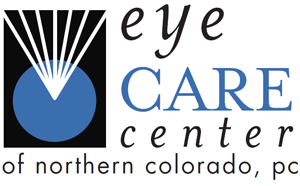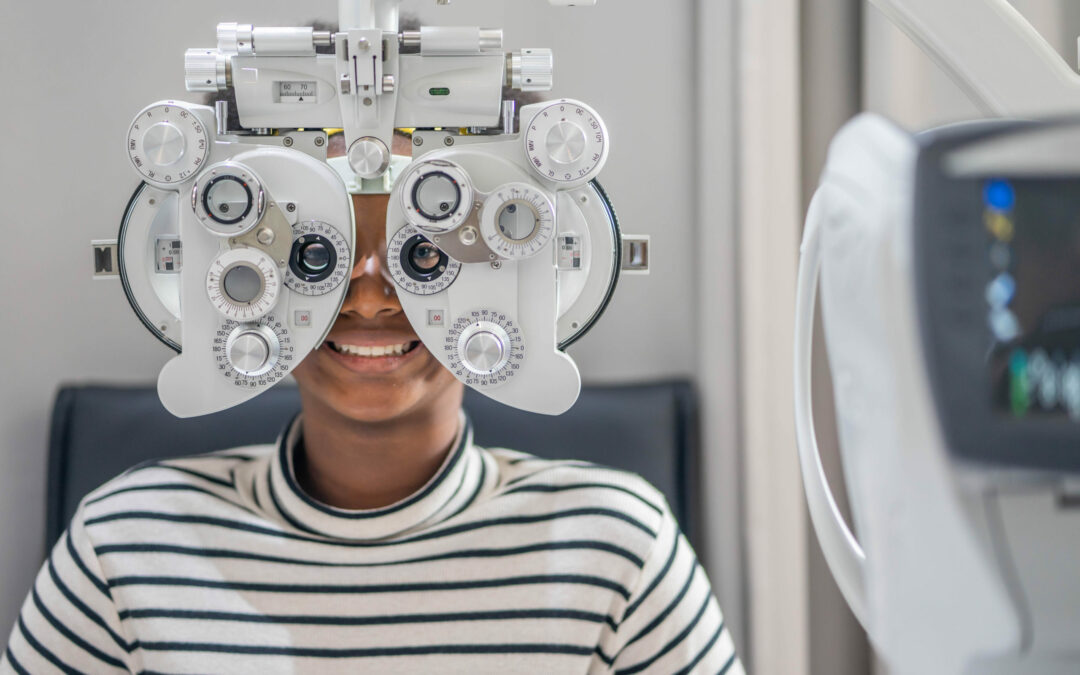Oftentimes we don’t even realize that we can’t see. In fact, the Centers for Disease Control and Prevention assert that “11 million Americans over age 12 need vision correction.” Those 11 million will be utterly surprised when they realize that trees aren’t just one massive ball of green, but in fact made up of individual leaves. Or that they shouldn’t have to hold their book three feet away from their face to see the words clearly.
In addition to improving your general quality of vision, regular eye exams catch conditions and diseases before they become irreversible. There are no pain receptors inside your eyes, so there aren’t warning symptoms for most eye diseases. Annual eye exams can detect eye health problems before you’ve even noticed a problem.
Early treatment is vital to catching diseases like glaucoma, cataracts, macular degeneration, and diabetic retinopathy. Sometimes these diseases can progress without any noticeable symptoms. Before you’ve discovered the issue, you could be on your way to permanent damage or even loss of sight altogether. Regular eye exams spot issues before they become one.
When to schedule basic eye exams
Childhood
Pediatric eye exams are vital to your child’s development. Be sure to have their first exam at six months old, followed by another at three years. Proceed with an exam at least every other year. Although vision screenings at schools are valuable in increasing awareness and may uncover certain problems, they are not an appropriate substitution for an eye exam by a qualified eye doctor. Many pediatric conditions need early detection and prompt treatment.
20s & 30s
If you don’t have any issues with your eyes or vision into adulthood, you should still schedule one comprehensive eye exam in your twenties and two in your thirties.
40s
When you reach 40 years old, “early signs of disease or changes in vision may appear,” according to the American Academy of Ophthalmology. It is important to schedule another comprehensive eye exam to troubleshoot any possible changes.
65 and older
As you age, it is essential to check for age-related conditions like:
- Cataracts
- Diabetic retinopathy
- Macular degeneration
- Glaucoma
Be sure to schedule your exams for every one to two years.
Exceptions to This Basic Schedule
- If you wear contact lenses, you will need to schedule your eye exam yearly.
- If you have diabetes, you will need to have annual eye exams.
- If you have a family history of eye disease, like glaucoma, you will need to schedule your exams for every one to two years.
Most importantly…
Follow your eye doctor’s advice. The eye exam schedule that they recommend is designed for your particular needs.
What to Expect From Your Eye Exam
If you’re nervous about your eye exam, there’s no need. Eye exams are easy and painless. During your appointment, we will work with you to understand your health history, any current issues, and vision goals. Please choose the Eye Care Center of Northern Colorado for your next Longmont, Lafayette, Greeley, or Boulder eye exam!
NOTE: Routine eye exams are performed in our Longmont and Lafayette offices.
Your eye doctor or their assistant will:
- Check your medical history, and examine for health problems that are visible in the eyes, such as high blood pressure, diabetes, high cholesterol, allergies, stress, and autoimmune diseases.
- Test your visual acuity using an eye chart.
- Have you look at an eye chart through a phoropter to determine your prescription for glasses or contact lenses. We often consider task-specific prescriptions for our patients who are athletes, heavy computer users, night drivers, photographers, and artists.
- Conduct patient education on lens and prescription options.
- Check how your pupils respond.
- Check your peripheral vision.
- Test your ocular motility (eye movement) for imbalances and alignment.
- Give you a glaucoma test to check on intraocular eye pressure (IOP).
- Perform an eye health exam for diseases such as macular degeneration, cataracts, dry eyes, environmental sensitivities, and allergies
- Check for scars or scratches on your eye or eyelid with a slit-lamp microscope.
- Dilate your eyes to enlarge the pupil so they can check for damage to the retina and optic nerve.
If any issues are suspected, your doctor may run additional tests.
Make an Appointment Immediately If…
It is important to stay on top of your regular eye exam visits, but if you have any of the following symptoms, the CDC recommends that you make an appointment right away:
- Decreased vision
- Draining, discharge, or redness of the eye
- Eye pain
- Double vision
- Floaters (tiny specks that appear to float before your eyes)
- Circles (halos) around lights
- Flashes of light
How can we help?
Eye Care Center of Northern Colorado are dedicated professionals offering the most sophisticated and comprehensive treatment, all in one place. For your next eye exam, contact your Longmont, Lafayette, Greeley, or Boulder eye doctor. We care about your health and are committed to exceeding your eye care needs!
And for more on eye care, read our blogs Preventative Eye Care and Eye Health & Screenings.

